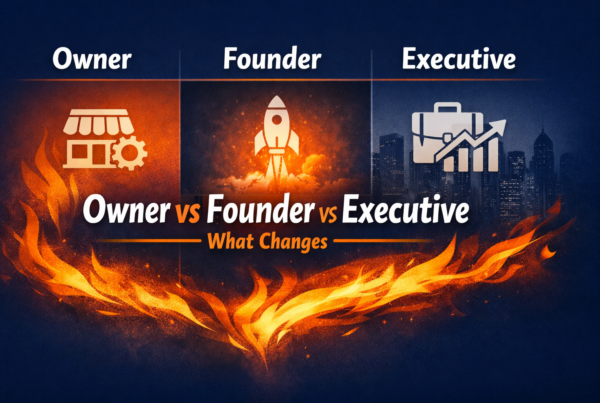Building Authentic Leadership: The Impact of Coaching in Business

The importance of authentic leadership in today’s business world
In a world where businesses are constantly evolving and competition is fierce, it’s becoming increasingly clear that authentic leadership is no longer just a nice-to-have – it’s a necessity. The importance of authentic leadership in today’s business world cannot be overstated, as it has the power to inspire teams, drive innovation, and create long-lasting success. In this blog, we will explore the concept of authentic leadership’s benefits and how you can cultivate this powerful approach to make a difference in your organization. So, buckle up and get ready to discover how authentic leadership focuses on the secret sauce that can transform your business and unlock the full potential of your team!
Coaching is a powerful tool for developing authentic leadership, enabling individuals to tap into their true potential and harness their unique strengths. By creating a supportive and nurturing environment, coaching fosters self-awareness, personal growth, and the ability to align one’s values with their actions. This, in turn, paves the way for leaders to embody authenticity and inspire trust within their teams. We will explore the significant impact of coaching on building authentic leadership in the business realm.
Understanding Authentic Leadership
Authentic leadership is a leadership style characterized by genuine self-awareness, transparency, ethical decision-making, and an unwavering commitment to aligning one’s actions with their values and beliefs. It involves leading with integrity, fostering trust and open communication, and displaying empathy and vulnerability while empowering others to reach their full potential.

The significance of authentic leadership lies in its ability to create a more positive working environment and productive work environment that fosters employee engagement, satisfaction, and loyalty. By being transparent and true to themselves, authentic leaders inspire trust and confidence among their team members, increasing motivation, collaboration, and overall team performance.
Moreover, authentic leadership contributes to organizations’ long-term success and sustainability, encouraging ethical behaviour and responsible decision-making. In an era where corporate scandals and breaches of trust are all too common, authentic leaders serve as role models for ethical conduct and ethical behaviour and help to build a strong reputation and maintain stakeholder confidence.
Furthermore, authentic leadership promotes innovation and adaptability. By valuing diverse perspectives and fostering open dialogue, authentic leaders encourage creative problem-solving and a culture of continuous learning. This enables organizations to stay agile and competitive in today’s rapidly changing business landscape.
Authentic leadership significantly shapes an organization’s culture, performance, and success. By embracing authenticity, leaders can inspire trust, foster collaboration, drive innovation, and ultimately contribute to their teams’ and businesses’ stable growth and prosperity.
Key characteristics of authentic leaders
Authentic leaders possess unique characteristics that set them apart from other leadership styles. These qualities enable them to build trust, inspire loyalty, and create a positive work environment.

Here are some key characteristics of authentic leaders:
Self-awareness: Authentic leaders have a deep understanding of their strengths, weaknesses, values, and beliefs. They continuously reflect on their actions and behaviours, striving for personal growth and self-improvement.
Transparency: Authentic leaders are open and honest in their communication, sharing their thoughts, feelings, and intentions with their team members. This transparency and honesty fosters trust and creates an environment where employees feel comfortable expressing their opinions and concerns.
Integrity: Authentic leaders consistently align their actions with values and principles, even when faced with difficult decisions or challenges. They lead by example, demonstrating ethical behaviour and making decisions based on a strong commitment to doing what’s right.
Empathy and compassion: Authentic leaders genuinely care about the well-being and success of their team members. They demonstrate a keen sense of empathy by listening actively, understanding different perspectives, and offering support when needed.
Vulnerability: Authentic leaders are unafraid to show their human side and admit mistakes or shortcomings. Being open and vulnerable creates a safe space for team members to do the same, fostering a culture of learning, self-discovery and growth.
Adaptability: Authentic leaders embrace change and are flexible in their approach. They recognize the importance of adapting to new circumstances and are open to new ideas, encouraging innovation and continuous improvement.
Empowerment: Authentic leaders believe in the potential of their team members and empower them to take ownership of their work, make decisions, and contribute to the organization or company’s mission and success. This sense of empowerment boosts employee engagement, motivation, and job satisfaction.
Vision and purpose: Authentic leaders have a clear vision for the future and can articulate it in a way that inspires and motivates their team. They also help their team members understand how their roles contribute to the organization’s larger purpose.
By embodying these key characteristics, authentic leaders can create a positive work environment that fosters trust, collaboration, and success, ultimately driving long-lasting growth and prosperity within their organizations.
How authentic leadership differs from other leadership styles
Authentic leadership stands out from other leadership styles because it emphasizes self-awareness, transparency, and a strong alignment between values and actions.

While there are numerous authentic leadership theories and styles, each with its strengths and weaknesses, here is a comparison of authentic leadership with some common styles, highlighting the key differences:
Transformational Leadership: Transformational leaders inspire and motivate their team members by articulating a compelling vision and fostering personal growth. While authentic and transformational leaders emphasize empowerment and inspiration to lead people, authentic leaders focus more on self-awareness, vulnerability, and staying true to one’s values.
Transactional Leadership: Transactional leaders focus on achieving goals through rewards and punishments. They prioritize efficiency and productivity, often using a top-down approach. In contrast, authentic leaders prioritize open communication, empathy, and ethical decision-making, which fosters a more collaborative and trusting work environment.
Servant Leadership: Servant leaders prioritize the needs and well-being of their team members, seeking to empower and support them in reaching their full potential. While both servant and authentic leaders share the traits of empathy and compassion, authentic leadership places a greater emphasis on self-awareness, transparency, and integrity.
Autocratic Leadership: Autocratic leaders make decisions unilaterally and exercise control over their team members, often limiting input from others. This style contrasts sharply with authentic leadership, which values open communication, collaboration, and empowering employees to contribute to decision-making.
Laissez-faire Leadership: Laissez-faire leaders take a hands-off approach, providing minimal guidance or direction to their team members. While this style can promote autonomy and innovation, it may need a clearer vision and purpose that authentic leaders provide. Authentic leaders balance empowering employees and providing guidance to ensure the organization stays aligned with its values and goals.
In summary, authentic leadership differs from other leadership styles through its strong focus on self-awareness, transparency, and alignment between values and actions. By embracing these qualities, authentic leaders foster trust, collaboration, and a positive work environment, leading to long-lasting organizational success.
The Role of Coaching in Developing Authentic Leadership
Overview of coaching as a developmental tool in business
Coaching has emerged as an essential developmental tool in business, helping individuals and teams unlock their full potential, enhance performance, and achieve personal and organizational goals. By providing guidance, support, and encouragement, coaching empowers individuals to overcome challenges, develop new skills, and grow personally and professionally.

Here’s an overview of coaching as a developmental tool in business:
Facilitates Self-Awareness: Coaching helps individuals gain a deeper understanding of their strengths, weaknesses, values, and beliefs. By increasing self-awareness, individuals can make informed decisions, align their actions with their values, and capitalize on their talents.
Enhances Skill Development: Coaching enables individuals to identify areas for improvement, set specific goals, and develop the necessary skills to achieve them. This may include improving communication, leadership, problem-solving, or technical abilities.
Boosts Performance: Through regular feedback and support, coaching helps individuals optimize their performance, overcome obstacles, and achieve desired outcomes. Improved performance at the individual level translates to increased productivity, business results, and success for the organization as a whole.
Promotes Goal Setting and Accountability: Coaching encourages individuals to set clear, measurable goals and develop actionable plans. By holding individuals accountable for their progress, coaching fosters a sense of ownership and responsibility, driving long-term growth and development.
Fosters a Growth Mindset: Coaching cultivates a growth mindset by encouraging individuals to view challenges as opportunities for learning and growth. This mindset promotes resilience, adaptability, and a commitment to continuous improvement.
Improves Employee Engagement and Retention: Coaching demonstrates an organization’s investment in its employees’ growth and well-being, leading to higher engagement, job satisfaction, and loyalty. As a result, organizations that prioritize coaching often experience lower turnover rates and higher employee retention.
Supports Leadership Development: Coaching is crucial in developing authentic and effective leaders. Coaching guides self-awareness, communication, decision-making, and empowerment, enabling individuals to hone their leadership skills and drive organizational success.
Encourages Work-Life Balance: Coaching can also help individuals achieve a healthy work-life balance by addressing stress management, time management, and personal well-being issues.
In conclusion, coaching is a powerful developmental tool in business, facilitating personal and professional growth, enhancing performance, and ultimately contributing to both individuals’ and organizations’ short-term and long-term success. By prioritizing coaching initiatives, businesses can foster a culture of continuous learning, innovation, and excellence.
How coaching supports the growth of authentic leadership
Coaching plays a vital role in nurturing and developing authentic leadership by providing tailored guidance, support, and feedback that align with an individual’s unique journey toward authenticity.

Here are some ways coaching supports the growth of authentic leadership:
Enhancing Self-Awareness: Coaching self-aware and encourages leaders to reflect on their strengths, weaknesses, values, and beliefs, fostering a deeper understanding of themselves. This self-awareness is crucial for authentic leaders, enabling them to align their actions with their values and make informed decisions.
Developing Emotional Intelligence: Coaching helps leaders enhance their emotional intelligence, which includes self-awareness, self-regulation, empathy, and social skills. These competencies are essential for authentic leaders, as they facilitate open communication, trust-building, and relationship management.
Cultivating Vulnerability: Coaching creates a safe space for leaders to embrace vulnerability, encouraging them to share their challenges, fears, and failures openly. Authentic leaders foster trust by being vulnerable and creating an environment where team members feel comfortable expressing their concerns and ideas.
Improving Communication Skills: Coaching assists leaders in developing effective communication skills, enabling them to articulate their vision, goals, and expectations clearly, while actively listening to their team members’ needs and concerns. Transparent and open communication is a cornerstone of authentic leadership.
Promoting Ethical Decision-Making: Coaching guides leaders in navigating complex ethical dilemmas and making decisions that align with their values and principles. By consistently demonstrating integrity and authentic and relational transparency, leaders inspire trust and loyalty among their team members.
Empowering Others: Coaching equips leaders with the tools and strategies needed to empower their team members, delegate responsibilities effectively, have positive relationships and create a culture of self-discipline, ownership and accountability. Authentic leaders believe in the potential of their team members and strive to help them grow and succeed.
Building Resilience: Coaching supports leaders in developing resilience and adaptability, enabling them to navigate challenges, setbacks, and change with grace and confidence. Authentic leaders maintain their core values and principles even in adversity.
Aligning Vision and Purpose: Coaching helps leaders clarify their vision and purpose, ensuring a clear sense of direction guides their actions and decisions. By articulating this vision to their team members, authentic leaders inspire motivation, commitment, and a sense of shared purpose.
In summary, coaching is instrumental in fostering authentic leadership growth by providing personalized guidance, support, and feedback that addresses each leader’s unique needs and challenges. By embracing coaching, aspiring authentic leaders can develop the skills, mindset, and competencies needed to lead with integrity, inspire trust, and drive organizational success.
Coaching Techniques for Cultivating Authentic Leadership
A variety of coaching techniques can be employed to cultivate authentic leadership. These techniques help leaders develop self-awareness, build strong interpersonal relationships, and align their actions with their values and beliefs.

Here are some effective coaching techniques for nurturing authentic leadership:
Active Listening: Coaches practice active listening by fully focusing on the leader, asking open-ended questions, and providing feedback without judgment. This technique creates a safe space for leaders to express their thoughts, concerns, and emotions, fostering self-awareness and vulnerability.
Powerful Questions: Coaches use thought-provoking questions that encourage reflection, introspection, and deeper understanding. By asking powerful questions, coaches guide leaders in exploring their values, beliefs, motivations, and challenges, ultimately helping them develop greater self-awareness and authenticity.
360-Degree Feedback: Gathering feedback from various sources, such as peers, subordinates, and supervisors, provides leaders with a comprehensive understanding of their strengths, areas for improvement, and the impact of their leadership style. Coaches can use this feedback to help leaders identify opportunities for growth and development, fostering true self–awareness and promoting authentic behaviour.
Goal Setting and Action Planning: Coaches work with leaders to set clear, measurable, and achievable goals for their authentic leadership journey. Together, they develop actionable plans to reach these goals, ensuring that progress is tracked and adjustments are made as needed. This technique promotes accountability and encourages continuous growth and development in leadership roles.
Role-Playing and Practice: Coaches use role-playing exercises to help leaders practice new skills, such as communication, empathy, and decision-making, in a safe and supportive environment. This technique enables leaders to experiment with different approaches, receive feedback, and refine their authentic leadership style.
Reflection and Journaling: Encouraging leaders to engage in regular reflection and journaling can help them gain insights into their thoughts, feelings, and behaviours, fostering self-awareness and personal growth. Coaches can guide leaders in reflecting on their experiences, identifying patterns, and exploring areas for improvement.
Mindfulness and Meditation: Mindfulness and meditation techniques can help leaders develop self-awareness, emotional regulation, and resilience. Coaches may incorporate these practices into their sessions, teaching leaders to remain present, focused, and centred, even in challenging situations.
Peer Coaching and Group Workshops: Besides one-on-one coaching, group and peer coaching sessions can provide valuable opportunities for leaders to learn from each other, share experiences, and receive diverse perspectives. This collaborative approach can enhance authentic leadership skills and foster better relationships in a supportive learning environment.
By incorporating these coaching techniques, coaches can effectively support authentic leadership, helping leaders develop the self-awareness, interpersonal skills, and values-driven mindset needed to inspire trust, drive performance, and achieve lasting success in their organizations.
Measuring the Impact of Coaching on Authentic Leadership
Measuring the impact of coaching on authentic leadership can be challenging, as it involves assessing changes in tangible and intangible aspects of a leader’s behaviour, mindset, and performance. However, evaluating the effectiveness of coaching interventions to ensure continuous improvement and long-term success is crucial.

Here are some approaches to measure the impact of coaching on authentic leadership:
Self-Assessment: Encourage leaders to assess their growth and progress through authentic self–reflection and self-evaluation. This can involve rating their development in key areas of authentic leadership, such as self-awareness, communication, empathy, and ethical decision-making.
360-Degree Feedback: Collect feedback from various sources, including peers, subordinates, supervisors, and the leaders themselves, to gain a comprehensive understanding of the changes in their leadership behaviours, interpersonal relationships, and overall effectiveness.
Pre- and Post-Coaching Assessments: Conduct assessments before and after the coaching intervention to identify improvements in specific areas of authentic leadership, such as emotional intelligence, communication skills, decision-making, and team engagement.
Goal Achievement: Track the achievement of specific goals related to authentic leadership, such as improving transparency, fostering trust, or empowering team members. Evaluate the extent to which these goals have been met and assess the impact of coaching on goal attainment.
Employee Engagement and Satisfaction: Monitor changes in employee engagement, satisfaction, and morale, as these factors often reflect the effectiveness of authentic leadership. Use surveys, interviews, and other feedback mechanisms to gauge the perceptions and experiences of team members.
Organizational Performance Metrics: Analyze relevant organizational performance indicators, such as productivity, profitability, customer satisfaction, and employee retention, to assess the impact of authentic leadership on the overall business success of the organization.
Case Studies and Success Stories: Document specific instances where coaching has positively influenced a leader’s authentic behaviours, decision-making, or team relationships. Share these success stories to demonstrate the value of coaching and inspire other leaders to embark on their authentic leadership journey.
Longitudinal Evaluation: Track the progress and development of authentic leadership over time, as the full impact of coaching may take time to become apparent. Conduct regular follow-up assessments and interviews to identify sustained improvements and areas for continued growth.
By using a combination of these approaches, organizations can effectively measure the impact of coaching on authentic leadership, ensuring that the interventions yield positive results and contribute to the long-term success and greater productivity of individual leaders and the organization.
Key metrics to evaluate the development of authentic leadership
Self-Awareness: Assess the leader’s growth in understanding their strengths, weaknesses, values, and beliefs.
Emotional Intelligence: Evaluate improvements in self-awareness, self-regulation, empathy, and social skills.
Communication Skills: Measure the leader’s ability to articulate their vision, goals, and expectations clearly, while actively listening to their team members’ needs and concerns.
Ethical Decision-Making: Determine how leaders consistently align their actions with values and principles.
Empowerment and Delegation: Assess the leader’s ability to effectively empower their team members and delegate responsibilities.
Resilience and Adaptability: Evaluate the leader’s capacity to navigate challenges, setbacks, and change gracefully and confidently.
Quantitative and qualitative data to support the impact of coaching
Quantitative Data:
- Changes in organizational performance metrics such as productivity, profitability, customer satisfaction, and employee retention.
- Pre- and post-coaching assessment scores show improvements in specific areas of authentic leadership.
- Employee engagement and satisfaction survey results, indicating shifts in team morale and perceptions of leadership.
Qualitative Data:
- Feedback is gathered through 360-degree evaluations, providing insights into the leader’s growth and development in various aspects of authentic leadership.
- Case studies and success stories document specific instances where coaching has positively influenced a leader’s authentic behaviours, decision-making, or team relationships.
- Interview responses and testimonials from leaders and team members, sharing their experiences and perspectives on the impact of coaching on authentic leadership development.
Overcoming Challenges in Building Authentic Leadership Through Coaching

Address common obstacles faced during coaching processes.
- Time Constraints: Leaders may need help finding time for coaching sessions due to busy schedules and competing priorities.
- Resistance to Change: Some leaders may be resistant to change or hesitant to embrace vulnerability, making it difficult for them to engage fully in the coaching process.
- Lack of Organizational Support: A supportive organizational culture can help the effectiveness of coaching in fostering authentic leadership development.
- Unrealistic Expectations: Setting overly ambitious goals or expecting immediate results can lead to frustration and disappointment, undermining the coaching process.
Strategies to overcome resistance and foster a coaching-friendly culture
- Communicate the Value of Coaching: Educate leaders and employees about the benefits of coaching for personal growth, leadership development, and organizational success.
- Establish a Safe Environment: Create a non-judgmental atmosphere encouraging open communication, vulnerability, and trust between coaches and leaders.
- Encourage Voluntary Participation: Allow leaders to choose whether to participate in coaching, fostering intrinsic motivation and commitment to the coaching process.
- Set Realistic Goals and Expectations: Collaboratively establish achievable goals and communicate that authentic leadership development is an ongoing process, not an overnight transformation.
- Provide Ongoing Support: Offer continuous support and resources to leaders throughout their coaching journey, reinforcing the importance of authentic leadership development and demonstrating organizational commitment to their growth.
Tips for selecting the right coach and coaching approach
- Align with Values and Goals: Choose a coach who shares the leader’s values and understands their unique goals for authentic leadership development.
- Assess Coaching Credentials and Experience: Ensure the coach has relevant training, certifications, and a proven track record of success in developing authentic leaders.
- Evaluate Coaching Style: Select a coach with a style and approach that resonates with the leader’s personality, preferences, and learning style.
- Request References and Testimonials: Seek feedback from other leaders who have worked with the coach, gaining insights into their effectiveness and impact on authentic leadership development.
- Pilot Coaching Sessions: Conduct initial coaching sessions to assess the compatibility between the coach and leader, ensuring a strong foundation for a productive coaching relationship.
Conclusion
Authentic leadership plays a crucial role in the success of businesses, as it fosters trust, open communication, and strong interpersonal relationships among team members. By aligning their actions with their values and beliefs, authentic business leaders inspire loyalty, commitment, and high-performance standards from their teams, driving organizational growth and long-term success.
Coaching is essential for developing authentic leadership, as it provides personalized guidance, support, and feedback tailored to each leader’s unique journey. Through various techniques, coaching helps leaders enhance self-awareness, emotional intelligence, communication skills, ethical decision-making, and resilience. Additionally, coaching promotes a growth mindset, empowering leaders to overcome challenges and continuously learn and grow.
Consider exploring executive coaching and opportunities to become an authentic leader or strengthen your leadership skills. By engaging in a coaching relationship, you can gain valuable insights, develop essential competencies, and unlock your potential as an authentic leader. Embrace the journey of personal and professional growth, and experience the positive impact authentic leadership can have on your team and organization.
To discover the difference coaching will make in developing your authentic leadership style, speak to Joel today.
604 998 3430



